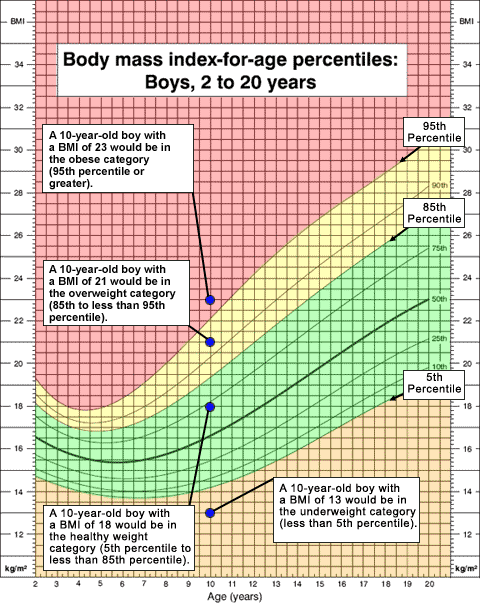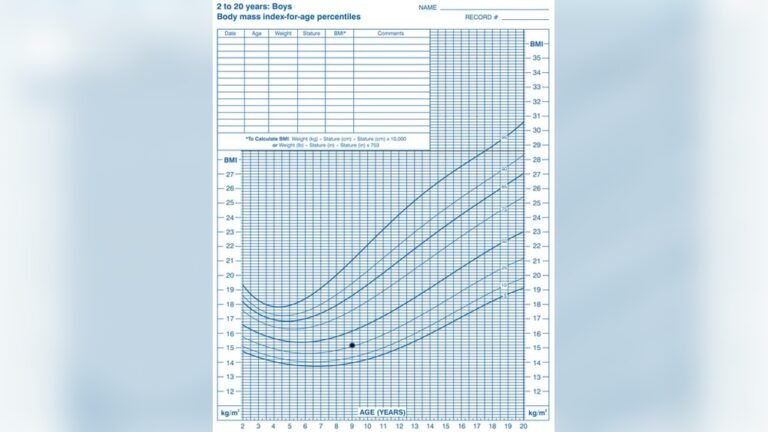Are you curious about what your Body Mass Index (BMI) really says about your health? The CDC BMI Calculator is a simple, reliable tool designed just for you to quickly find out where you stand.
Whether you want to check your own BMI or monitor your child’s growth, this calculator gives you clear results based on trusted guidelines. Knowing your BMI can help you make smarter choices about your lifestyle and health. Keep reading to discover how the CDC BMI Calculator works and why it’s a must-have tool for understanding your body’s needs.

Credit: www.medicalnotes.info
What Is Bmi
Body Mass Index, or BMI, is a simple number that shows if a person’s weight is healthy. It uses a person’s height and weight to find out if they are underweight, normal, overweight, or obese. BMI is a quick way to check general health related to body weight.
The CDC BMI Calculator helps find this number easily. It is useful for adults and children to track their body weight status. Understanding BMI helps many people take steps toward better health.
Bmi Basics
BMI is calculated by dividing weight in kilograms by height in meters squared. The result is a number that fits into a range. This range helps classify a person’s weight status. It does not measure body fat directly but gives a good estimate.
Why Bmi Matters
BMI helps spot potential health risks linked to weight. Too high or too low BMI can lead to health problems. Doctors use BMI to guide advice on diet and exercise. It is a useful tool for early health checks.
Bmi Categories
BMI values fall into different categories. Below 18.5 means underweight. From 18.5 to 24.9 is normal weight. A BMI of 25 to 29.9 is overweight. A BMI of 30 or above is obese. These categories help people understand their health status.
Using The Cdc Bmi Calculator
Using the CDC BMI Calculator helps you understand your body weight and health better. It is a simple tool to check if your weight is in a healthy range. This tool can guide you in making choices for a healthier lifestyle.
Accessing The Calculator
Visit the official CDC website to find the BMI calculator. It is free and easy to use on any device. No download or sign-up is needed to access the tool.
Entering Your Information
Enter your height and weight in the boxes provided. Choose your units, either pounds and inches or kilograms and centimeters. Make sure the data you enter is accurate for the best result.
Interpreting Results
The calculator shows your BMI number and category. Categories include underweight, normal weight, overweight, and obesity. Use these results to understand your current health status.
Bmi For Adults Vs. Children
BMI, or Body Mass Index, is a tool to check body weight health. It works differently for adults and children. Adults use a standard scale to find their BMI. Children and teens use BMI percentiles. These take age and sex into account. This helps to understand growth patterns better.
Adult Bmi Calculator Features
The adult BMI calculator uses weight and height. It divides weight by height squared. The result falls into categories like underweight, normal, overweight, or obese. This tool is quick and easy to use. It helps adults monitor their health risks linked to weight.
Child And Teen Bmi Calculator
Children and teens grow at different rates. The child and teen BMI calculator adjusts for age and sex. It calculates BMI and finds the percentile. Percentiles compare a child’s BMI to others of the same age and sex. This shows if the child is underweight, healthy, overweight, or obese.
Bmi Percentiles Explained
BMI percentiles show how a child’s BMI compares to peers. For example, a 75th percentile means the child weighs more than 75% of peers. A percentile below 5 may indicate underweight. Percentiles between 5 and 85 show healthy weight. Above 85 suggests overweight or obesity. This method helps track healthy growth over time.
Benefits Of Tracking Bmi
Tracking your Body Mass Index (BMI) offers clear benefits for your health. It helps you understand your weight status and its impact on well-being. Using the CDC BMI Calculator makes this process simple and accurate. Regularly checking your BMI supports better health decisions and early action.
Knowing your BMI is more than just a number. It guides you toward healthier habits and alerts you to possible health issues. Below are key benefits of tracking BMI to help you stay informed and proactive.
Health Risk Identification
BMI helps identify risks related to weight. High or low BMI values can signal potential health problems. These include heart disease, diabetes, and other chronic conditions. Early detection through BMI allows timely medical advice and care. This simple measure acts as a warning system for your health.
Monitoring Weight Changes
Tracking BMI over time shows how your weight changes. It helps you see progress or setbacks in weight management. Regular checks keep you aware of trends in your health. This awareness motivates you to maintain or improve your lifestyle. BMI monitoring is a useful tool for setting realistic goals.
Supporting Healthy Lifestyle Choices
BMI data supports better choices about diet and exercise. Knowing your BMI category guides you to adjust habits accordingly. It encourages balanced eating and regular physical activity. This helps maintain a healthy weight and reduces health risks. Tracking BMI keeps you focused on long-term wellness.
Limitations Of Bmi
The CDC BMI Calculator is a helpful tool to estimate body weight status. It uses height and weight to calculate a number called Body Mass Index (BMI). This number helps to categorize weight as underweight, normal, overweight, or obese. Despite its usefulness, BMI has several limitations. It does not measure body fat directly. It cannot distinguish between muscle and fat. It also does not consider age or gender differences.
Muscle Vs. Fat Differences
BMI treats all body weight the same. It does not separate muscle from fat. People with high muscle mass may have a high BMI but low body fat. Athletes often fall into this group. Their BMI might suggest overweight or obesity when they are healthy. This can cause confusion or wrong health assessments.
Age And Gender Considerations
BMI does not adjust for age or gender. Women usually have more body fat than men at the same BMI. Older adults often lose muscle and gain fat, but BMI may not show this change. Children and teens grow at different rates, so their BMI needs special charts. Using adult BMI standards on kids can be misleading.
When To Seek Professional Advice
BMI is a screening tool, not a diagnosis. It gives a rough idea of weight status. For detailed health information, consult a healthcare provider. Professionals can measure body fat, muscle, and other factors. They consider lifestyle, diet, and medical history. This helps create a complete health profile beyond BMI numbers.

Credit: www.cchrchealth.org
Tips For Accurate Bmi Measurement
Accurate BMI measurement is vital for understanding your health status. Small mistakes in measuring height or weight can change your BMI result. Precise numbers help you track changes and plan health goals effectively. Use these tips to get the most reliable BMI results.
Measuring Height And Weight Correctly
Stand straight against a flat wall for height measurement. Use a tape measure or a stadiometer for best results. Remove shoes and bulky clothes before weighing yourself. Use a digital scale for more precise weight measurement. Weigh yourself at the same time of day for consistency. Record your height and weight carefully to avoid errors.
Using Online Tools Effectively
Choose trusted BMI calculators like the CDC BMI Calculator. Enter your height and weight exactly as measured. Double-check your inputs before calculating your BMI. Understand that online tools provide estimates, not medical diagnoses. Use the results to guide your lifestyle choices and talk to a doctor if needed.
Regular Tracking Habits
Measure your height and weight regularly to monitor changes. Weekly or monthly tracking shows progress and helps set goals. Keep a simple journal or use health apps to record your data. Consistent tracking motivates healthy habits and alerts you to sudden changes. Share your progress with a healthcare professional for advice.
Additional Cdc Health Resources
The CDC offers many health tools beyond the BMI calculator. These resources help track health risks and guide healthy living. They support better choices for all ages. Explore these tools to understand your health better.
Prediabetes Risk Test
The Prediabetes Risk Test helps identify early signs of diabetes risk. It uses simple questions about your weight, age, and lifestyle. The test shows if you should see a doctor for further checks. Early detection can prevent diabetes and improve health.
Growth Chart Tools
Growth charts track children’s height and weight over time. They show how a child grows compared to others their age. These charts help spot growth problems or nutrition issues early. Parents and doctors use them to monitor children’s health closely.
Adult And Teen Health Guidelines
The CDC provides clear health guidelines for teens and adults. These cover nutrition, physical activity, and disease prevention. Following these guidelines helps maintain a healthy weight and strong body. They offer easy steps to improve daily health habits.

Credit: www.cdc.gov
Frequently Asked Questions
What Is The Cdc Bmi Calculator?
The CDC BMI Calculator is an online tool that estimates body mass index. It helps assess weight status based on height and weight for adults and children.
How Does The Cdc Bmi Calculator Work?
It calculates BMI by dividing weight in kilograms by height in meters squared. The tool then categorizes BMI into underweight, normal, overweight, or obesity.
Who Should Use The Cdc Bmi Calculator?
Anyone interested in evaluating their weight status can use it. It’s especially helpful for adults, children, and teens to monitor health risks.
Is The Cdc Bmi Calculator Accurate For All Ages?
Yes, the CDC provides separate calculators for adults and children. Child and teen calculators include BMI percentile to account for growth variations.
Conclusion
Using the CDC BMI Calculator helps track your weight health simply. It uses height and weight to estimate body fat levels. Knowing your BMI can guide healthy choices every day. This tool works for adults, children, and teens alike. Regular checks support early steps to prevent health risks.
Keep your results handy and share them with your doctor. Small changes in lifestyle can lead to better health. Stay aware, stay active, and make informed decisions. The CDC BMI Calculator is an easy way to start.



